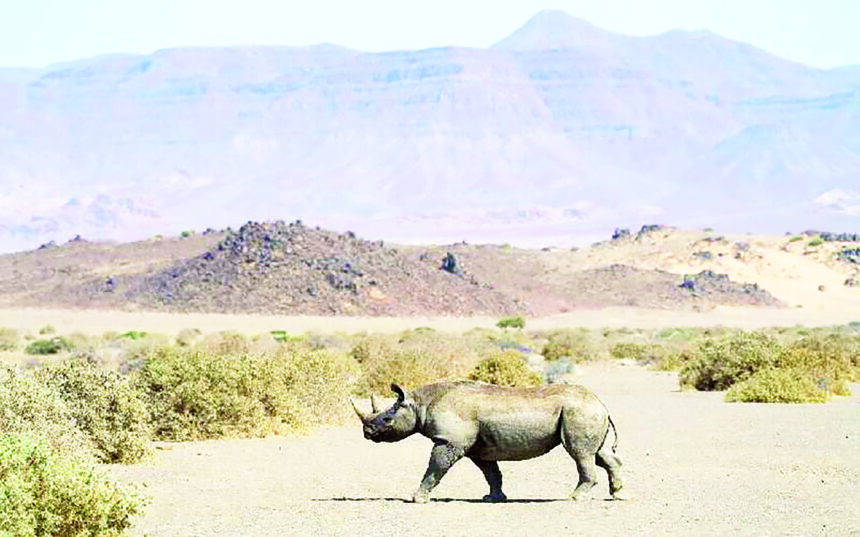SWAKOPMUND – The Doro !Nawas Conservancy has claimed a small but significant victory after it successfully obtained an interim interdict from the High Court of Namibia to halt all mining activities within its jurisdiction.
The decision was made by High Court Judge Colin Parker on Monday after a hearing on 8 November.
The Doro !Nawas Conservancy, Uibasen Twyfelfontein Conservancy, #Aodaman Traditional Authority and Ultimate Safaris (Pty) Ltd brought the urgent application to challenge approvals granted for mining activities in the Kunene region.
This application was sought against Ottilie Ndimulunde, who holds mining claims in the disputed area.
She seeks to mine semi-precious stones.
The application also included the environmental commissioner, environment ministry, mines ministry, mining commissioner as well as the Sorris Sorris Conservancy.
In their case, the conservancies argued that the Environmental Clearance Certificate (ECC) and mining claims were issued without proper consideration of the severe environmental impact on the area’s fragile ecosystem.
The applicants expressed concerns about the destruction of flora and fauna, particularly the critically endangered black rhinos, and the negative impact on tourism, which sustains local communities.
They sought an urgent interdict to stop all mining and road construction activities on the disputed land, highlighting the potential for irreparable harm while the review and appeal processes continue.
The conservancy, located on communal land under the Nature Conservation Ordinance of 1975, filed the case against several respondents, including government agencies and private companies.
This legal battle stems from mining claims granted in the Kunene region, an area that supports endangered black rhinos and contributes significantly to the local tourism economy.
In her affidavit, Ndimulunde defended her mining rights, arguing her activities comply with the Minerals (Prospecting and Mining) Act of 1992.
She disputed the urgency of the application, stating that the environmental commissioner found her mining area to be environmentally low risk.
She claimed that agreements cited by the applicants were being used to secure exclusive tourism rights.
“The environmental commissioner has confirmed that my mining claims are not considered environmentally sensitive. I believe the applicants’ reliance on agreements to oppose my activities is both unlawful and misleading,” she stated.
However, Save the Rhino Trust CEO Simon Uri-khob opposed the mining activities, highlighting the risks to black rhinos and tourism.
In his affidavit, he criticised the environmental impact assessment (EIA) for failing to address the dangers of poaching and disruption caused by mining.
He also pointed out that road construction violated ECC conditions.
“Mining operations, including the use of heavy machinery and blasting, will disturb the black rhinos, forcing them to migrate, or increasing their risk of poaching,” Uri-khob stated.
“Despite conditions prohibiting road construction in this ecologically sensitive area, heavy machinery has been clearing vegetation to build a road to the mining site,” he added.
Judge Parker ruled in favour of the conservancy, stating that the applicants demonstrated urgency and the likelihood of harm.
The court order prohibits the respondents from using heavy machinery or conducting any mining activities on the disputed land.
“The applicants have a statutory right to prevent activities that endanger their ecosystem. Their timely action ensures the area is protected from potential harm,” the judge noted.
The court also ordered the first respondent to cover the applicants’ legal costs, including fees for one instructing and two instructed counsels.



